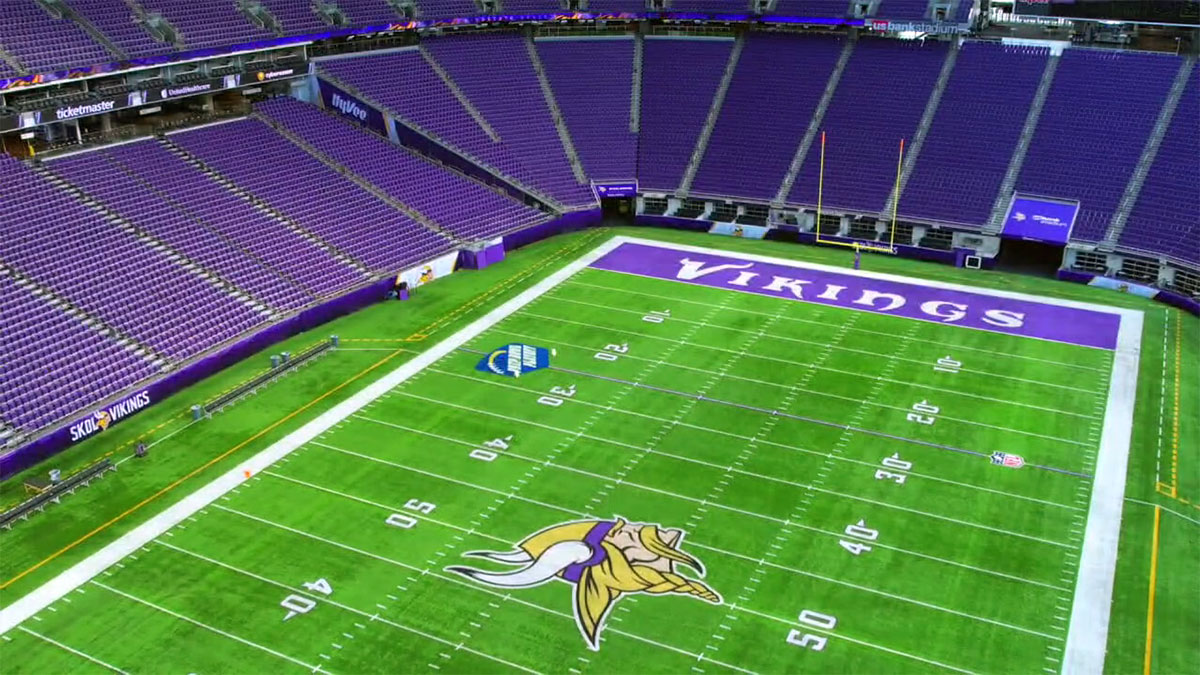Would a natural grass field be possible at US Bank Stadium?

Natural grass at U.S. Bank Stadium?
When Aaron Rogers went down with a torn Achilles tendon during Monday night football, his season-ending injury did more than just deflate New York Jets fans.
MINNEAPOLIS (FOX 9) - When Aaron Rogers went down with a torn Achilles tendon during Monday night football, his season-ending injury did more than just deflate New York Jets fans.
It prompted the executive director of the NFL Players Association to call for all stadiums to move to natural grass surfaces.
Officials at U.S. Bank Stadium say it is designed to have artificial turf, and it would be inappropriate to speculate on the potential of transitioning to a natural grass playing field.
But for an enclosed facility like the Vikings home stadium, would a natural grass field even be possible?
"Complete enclosed canopy stadiums like U.S. Bank Stadium are almost never fielded with a natural turfgrass," said University of Minnesota Turfgrass Extension Educator Dr. Jon Trappe.
Even though part of the roof is made of EFTE, a plastic-like material that is lighter and cheaper than grass, experts say there wouldn't be enough hours of sunlight a day during our Minnesota winters for natural grass inside the stadium to grow or repair itself without grow lights.
"Sun angle is lower, so light quality and quantity are poor, so day length is short, and the light angle is weaker. So the grasses themselves are getting less sunlight, which is what they need for photosynthesis," said Dr. Trappe.
A turfgrass management professor at Michigan State, who is working with FIFA to bring natural grass to five domed stadiums when the World Cup comes to the U.S. in 2026, says a natural grass field in an enclosed stadium would most likely have to be swapped out every few weeks, which some outdoor NFL stadiums already do.
But with grow lights and other infrastructure, it could cost U.S. Bank Stadium $4 to $5 million a year to maintain.
"We're not talking about anything new. We're just talking about it would be new to a domed stadium," said Trey Rogers.
But experts say a football field takes more punishment than a soccer field and would have to be changed out with fresh sod more often for the NFL than the World Cup.
"I think this is an opportunity for us to have a conversation and to raise awareness for field safety," said Dr. Trappe.

